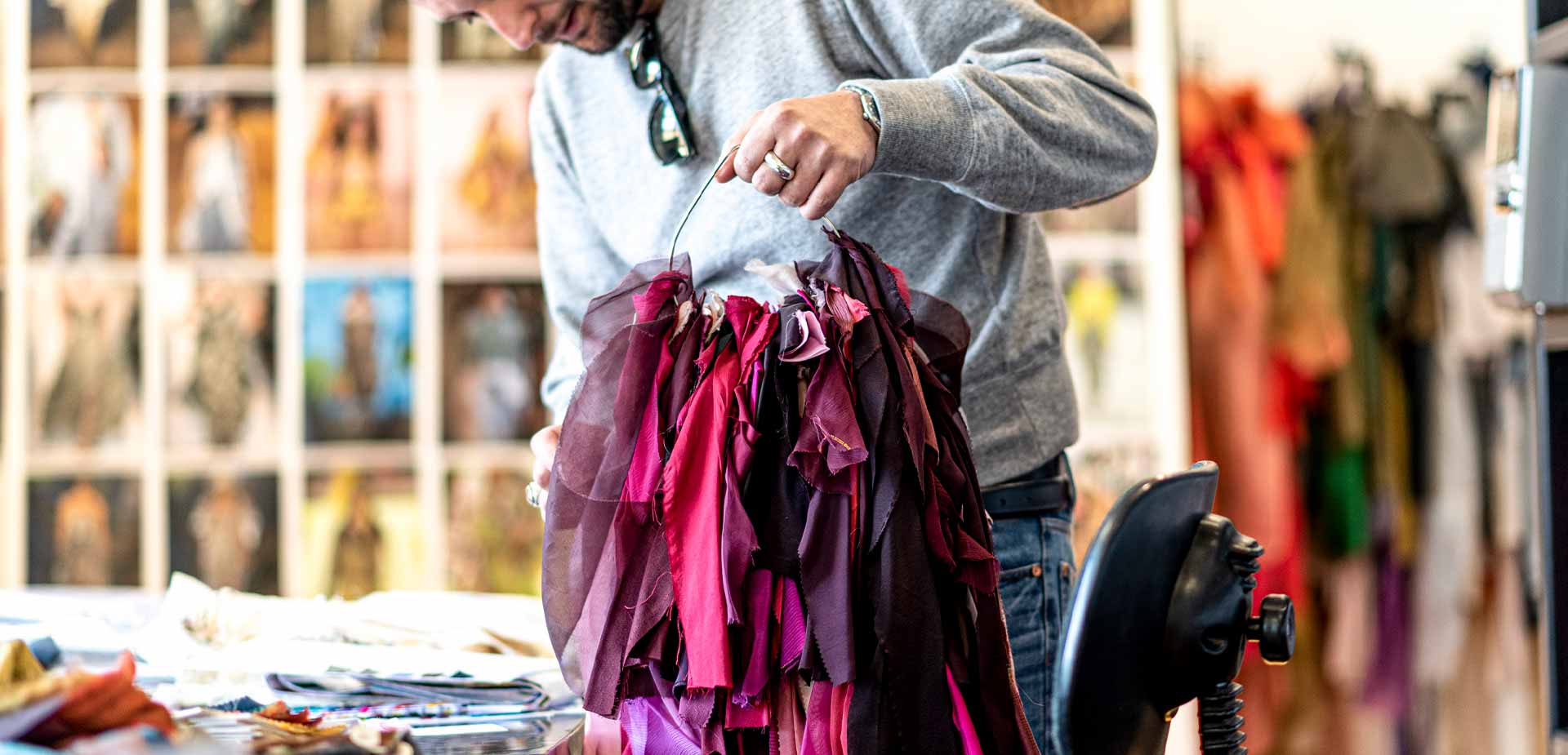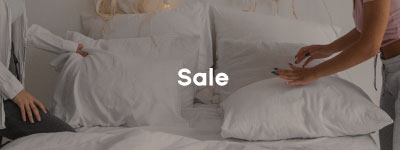Revolutionizing the Game: Innovations in Sustainable Fabric

In today's fast-paced and environmentally conscious world, the fashion industry is undergoing a major transformation. With growing concerns about the environmental impact of traditional fabric production, there is a pressing need for innovative and sustainable alternatives. Fortunately, the fabric industry is rising to the challenge with groundbreaking innovations that are revolutionizing the game.
In this article, we will delve into the exciting world of sustainable fabric innovations. From cutting-edge technologies to eco-friendly materials, these advancements are changing the way we think about fashion and its impact on the planet. Join us as we explore the latest trends, explore the pioneers behind these innovations, and discover how sustainable fabric is shaping the future of the fashion industry. Get ready to be inspired by the remarkable strides being made to create a more sustainable and ethical fashion landscape!
What Are Sustainable Fabrics?
Before we dive into the topic, we have to understand what are sustainable fabrics.
In general, sustainable fabrics are materials that are produced and manufactured in a way that minimizes their negative impact on the environment and promotes social responsibility. These fabrics are designed to address the challenges of traditional textile production, such as excessive resource consumption, pollution, and unethical labor practices. Sustainable fabrics prioritize the use of renewable resources, reduce waste generation, and prioritize fair treatment of workers throughout the supply chain.
What Are the Categories of Sustainable Fabrics?
- Organic Fabrics
- Recycled Fabrics
- Plant-Based Fabrics
- Regenerated Cellulosic Fibers
- Innovative Bio-Based Fabrics
- Natural Animal Fibers
Organic Fabrics: Organic fabrics are made from fibers that are grown without the use of pesticides, synthetic fertilizers, or genetically modified organisms (GMOs). Examples include organic cotton, organic hemp, and organic linen.
Recycled Fabrics: Recycled fabrics are made from post-consumer waste materials or pre-consumer textile waste that would otherwise end up in landfills. These materials are processed and transformed into new fabrics, reducing the need for new resource extraction. Examples include recycled polyester, recycled nylon, and recycled cotton.
Plant-Based Fabrics: Plant-based fabrics are derived from renewable plant sources. These materials often have a lower environmental impact compared to synthetic fibers. Examples include Modal (made from beech trees), and bamboo fabric (made from bamboo grass).
Regenerated Cellulosic Fibers: Regenerated cellulosic fibers are made from natural materials such as wood pulp, bamboo, or agricultural waste. These materials go through a chemical process to convert them into fibers. Examples include viscose, lyocell, and rayon.
Innovative Bio-Based Fabrics: Innovative bio-based fabrics are made from new and emerging materials derived from renewable sources. These fabrics are often created through innovative processes that reduce environmental impact and resource consumption.
Natural Animal Fibers: Natural animal fibers, when sourced responsibly, can also be considered sustainable. Examples include wool from ethically raised sheep, alpaca fiber, and silk from sustainable silk farms that prioritize the well-being of silkworms.
Innovative Sustainable Fabric Products in the Industry
1.TENCEL™

TENCEL™ is a sustainable fabric brand known for its eco-friendly production process and desirable properties. Made from wood pulp sourced from sustainably managed forests, TENCEL™ fibers are produced using a closed-loop system that minimizes waste and environmental impact. The fabric is soft, breathable, and gentle on the skin, with excellent moisture-wicking capabilities. TENCEL™ requires less water compared to conventional cotton and is grown on non-agricultural land. Its versatility has made it a popular choice in various textile applications, and products labeled as TENCEL™ meet specific quality and sustainability criteria. Overall, TENCEL™ offers a sustainable and comfortable alternative for conscious consumers and brands.
2.Piñatex

Piñatex is a sustainable and innovative textile made from pineapple leaf fibers. It is a natural, cruelty-free alternative to traditional leather, offering similar properties and aesthetics. The production of Piñatex involves extracting the fibers from pineapple leaves, which are a byproduct of the agriculture industry. These leaves are usually discarded, making Piñatex a sustainable and resourceful solution. The fibers are then processed into a durable and versatile material that can be used for various applications, including fashion, accessories, and upholstery. Piñatex is known for its strength, breathability, and unique textured appearance, making it a popular choice among conscious consumers seeking ethical and eco-friendly alternatives to animal-based materials.
3.Bananatex®

Bananatex® is a sustainable and innovative fabric made from banana plants. It is a natural and vegan alternative to traditional textiles, offering a range of environmental benefits. The production of Bananatex® involves extracting the fibers from the stems of banana plants, which are considered waste after the fruit has been harvested. These fibers are then spun into a durable and lightweight fabric that can be used for various applications, including bags, accessories, and apparel. Bananatex® is known for its strength, flexibility, and unique texture, making it an attractive choice for those seeking sustainable and eco-friendly materials. By utilizing banana plant waste and reducing the reliance on synthetic fabrics, Bananatex® helps to minimize environmental impact and promote a more circular and sustainable approach to textile production.
4.Mylo™

Mylo™ is an innovative and sustainable material that mimics the properties of leather but without the need for animal products. It is created using a unique process that involves growing mycelium, the underground root structure of mushrooms, in a controlled environment. The mycelium forms a dense network of fibers that can be harvested and transformed into a versatile and durable material. Mylo™ offers a sustainable alternative to traditional leather, as it requires fewer resources, emits fewer greenhouse gases, and avoids the use of harmful chemicals commonly associated with leather production. It has a similar look, feels, and performance to animal-based leather, making it a desirable choice for the fashion, accessories, and furniture industries. Mylo™ represents a breakthrough in sustainable material innovation, showcasing the potential for biomaterials to revolutionize the fashion and textile industry and contribute to a more environmentally conscious future.
5.REPREVE®

REPREVE® is a leading brand of recycled performance fibers that are made from post-consumer plastic bottles and other recycled materials. The brand's innovative technology transforms discarded plastic bottles into high-quality, durable, and sustainable fibers that can be used in a wide range of products, including apparel, accessories, and home furnishings. By repurposing plastic waste, REPREVE® helps to reduce the consumption of virgin resources, conserve energy and water, and decrease greenhouse gas emissions. The fibers retain their performance characteristics, offering comfort, moisture-wicking properties, and durability, while also contributing to a cleaner and greener environment. REPREVE® is a testament to the power of recycling and the potential for transforming waste into valuable resources for a more sustainable future.
6.ECOVERO™

ECOVERO™ is a sustainable viscose fiber produced by the Austrian company Lenzing. It is derived from renewable wood sources, such as certified sustainably managed forests, and produced using an eco-responsible manufacturing process. ECOVERO™ fibers are known for their low environmental impact, as they consume less water, generate lower emissions, and have a reduced carbon footprint compared to conventional viscose production. The fiber is biodegradable and compostable, making it a more eco-friendly alternative for fashion and textile applications. ECOVERO™ fabrics are soft, breathable, and versatile, offering comfort and style while promoting sustainability in the fashion industry.
7.ECONYL®

ECONYL® is a sustainable nylon yarn created by the Italian company Aquafil. It is made from regenerated nylon waste materials, such as discarded fishing nets, fabric scraps, and industrial plastic. Through a process called depolymerization and re-polymerization, the waste materials are transformed into high-quality nylon yarn that can be used for various applications, including fashion, swimwear, and carpeting. ECONYL® is known for its positive environmental impact, as it helps reduce waste in landfills and oceans, conserves natural resources, and minimizes the carbon footprint associated with nylon production. It is a versatile and eco-friendly alternative to traditional nylon, promoting circular economy practices and sustainable fashion.
Final Thoughts On Sustainable Fabrics’ Future
In conclusion, the future of sustainable fabrics looks promising. As consumers become more aware of the environmental and social impacts of the fashion industry, there is a growing demand for sustainable alternatives. Fabric brands are stepping up their game, developing innovative materials that prioritize eco-conscious production methods, recyclability, and ethical sourcing. With advancements in technology and increased collaboration across industries, we can expect to see even more sustainable fabric options in the future. These fabrics not only benefit the planet but also offer high-quality, stylish, and durable alternatives to traditional materials. By supporting and promoting sustainable fabrics, we can contribute to a more sustainable and responsible fashion industry, creating a better future for both the environment and future generations.
Try Sustainable Bed Sheet at Sonive

SHOP NOW
At Sonive, we understand the importance of creating a comfortable sanctuary in your bedroom. That's why we have partnered with UNIFI, an innovative textile company known for its expertise, cutting-edge technology, and stellar reputation in the recycled fiber industry. Together, we have crafted a range of bedding products that provide the utmost softness and comfort for your sleep experience. Our sheet sets are made using REPREVE®, a recycled microfiber from UNIFI, ensuring that you can enjoy luxurious bedding while contributing to a sustainable future. With double-brushed fabric, our sheets offer an unparalleled level of softness that will envelop you in comfort. The excellent breathability of the fabric makes it suitable for all seasons, ensuring that you stay cozy year-round. From the moment you lay down, you'll feel the difference in comfort and softness. With our sheet set, you can enjoy a restful night's sleep and wake up refreshed and ready to embrace each new day with joy.
-
Posted in
Fabrics Fact



